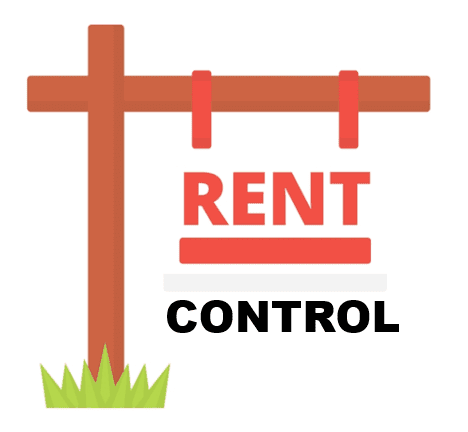Why I’m a Realtor for rent control

Housing is the social issue that is first to mind for me right now. I find that I am deeply at odds with my fellow Realtors® about housing policy, especially about tenant and landlord issues. My focus is not because of my day job, rather, in spite of it.
The National Association of Realtors® and its state and local branches support the prosperity of property owners. This keeps me at odds with them. My career is helping people buy property. For me, runaway housing prices are a bad thing. It makes me, and my company, real oddballs in the profession. So, when hundreds of thousands of dollars (which include the dues I pay) are used to vilify rent control, it weighs on me.
The 2023 rent control, as currently proposed:
Proposed rules:
- Rental rate for controlled apartments is capped at the consumer price index, plus six percent.
- Rent cannot be raised more than ten percent a year.
- Exemptions account for roughly 45 percent of all Boston rental units. These properties are exempt:
- New construction is exempt for the first fifteen years.
- Owner-occupied buildings with six or fewer units is exempt.
Who is harmed by high rents?
The current situation in the city of Boston cries out for rent control.
Typical asking rents in the city were about $3,420 in January, up about 25% in the last two years, according to data from Zillow Group. This is far above the $1,970 national level, according to the Wall Street Journal.
Boston and the greater Boston region have a housing shortage. Rents are among the highest in the country. Without rent control, rental costs seem to go up, dramatically, almost every year. Capping rent increases at ten percent a year sounds like an obvious first step.
Renters:
High housing prices are a bad thing for our buyer-clients. They are even worse for renters. Every summer, I get countless calls or emails from people in my community who want help fighting their landlords. The conversations go like this.
Q: “What is the limit on the amount that a landlord can raise the rent?”
A: “There is no limit. The landlord can charge whatever they want. Their only risk is not finding a tenant who will pay that price.”
Sometimes, the conversation changes to one about moving out of state. Sometimes, people just keep paying the rent, or they move to a cheaper apartment. Sometimes, this becomes a conversation about rent control. If there were rent control, there would be limits on how much rent can go up.
Employers:
A high cost of living translates into the need to pay higher wages. Prospective employees are turned off by high rental (and sale) prices here. Recruiters have to compete with companies in other cities where housing is cheaper. According to Rent Data, Massachusetts was in the top five highest rental cost states.
The obvious need for affordable housing in the Boston area is not new. A Harvard study in 2006 reported:
Business owners are particularly harmed by housing-supply restrictions because they either have to pay high wages as the price of being in Massachusetts or move out of state to a place with lower housing costs and wages. Indeed, in the past few years, [report from 2006] business leaders have pointed to high housing costs as a significant problem involved in doing business in Massachusetts and, in efforts such as the Commonwealth Housing Task Force, they have actively worked to find solutions. As the task force concluded, the only solution to this problem, and to the rising cost of living within Massachusetts, is serious state intervention. Only statewide action can internalize the cross-jurisdiction externalities created by the current regulatory system (see Carman, Bluestone, and White, 2003). [source]
Who is harmed by rent control?
The losers, if rent control is re-established, are people who run the businesses that rent out property. Their profit will be limited to a ten percent increase per year. The business of renting investment property will be dampened by this. However, rents in Boston went up about twenty-five percent over two years — which is twelve and a half percent per year, on average.
Even with rent control, there will be profit for these businesses. It’s just that their profit margins will be capped.
Developers will have their profits limited due to a flattening of the top rate that the building can rent for. Rental buildings will rent for full market rate for fifteen years; however, after that, their rental prices will be tied to the area consumer price index, plus six percent. Potential buyers of those buildings will know that they cannot charge tenants whatever the market will bear after the first fifteen years. This will dampen the value of selling these properties.
Between the rock and the hard place
I hesitated to write yet another real estate post on my personal blog. But, it is what is bothering me this week. I make my living in real estate. Outside of my office, most of my peers are allied with rental property owners and developers. I am allied with buyers and renters. I don’t want prices to go up on either of those groups.
In January, I wrote about small landlords and their tenants. Owners like those I wrote about will not be adversely affected by rent control. Owner-occupant buildings, like theirs, are exempt.
In February, I wrote about home heating improvements and the effectiveness of the incentives given to property owners to upgrade their home heating and insulation. First, I wrote about energy efficiency incentives for rich people, hoping there would be more alternatives. Two weeks later, there were new, more equitable choices, coming down the pike. So, I had to write about that!
I wish my day job was not showing up on my musings about what is wrong with the world. But, it is, so I need to say so.